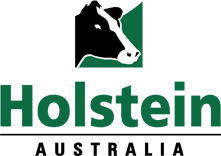Clydevale Holsteins named double Master Breeder
Prefix: Clydevale
Member: Clydevale Holsteins
Location: Macorna North, Cohuna, Vic
How long have you been in the industry: 48 years
Farming generation: 4th generation
Land size: approx. 2700 acres
Cows milked: 500
Important cow families: Pennys, Fantas, Irenes, Sunspots, Perfections
Favourite bulls used: Solomon, Phoenix, Pragna, Shotime, Lordpres, Shottle and Mascot
Current bull team: Kingdoc, Sidekick, Mirand, Contender, Landslide, Chief and Radio
Important traits: udders, feet and legs and a cow with dairy (front end) strength
First EX cow: Clydevale Warden Sonya
The Dee family of Clydevale Holsteins in Northern Victoria have achieved their second Master Breeder award.
“It’s really nice to be able to uphold Mum and Dad’s legacy, which they put an enormous amount of work into. We are stoked and it’s something we hold very high” says Mark.
Clydevale was established by Mark’s parents Adrian and Cheryl in 1973.
They started dairying in Clyde North, Moving to a 500 acre property in Macorna North in 1980. Since then Clydevale has expanded while remaining a solid family operation.
The property is now 2,700 acres and founder Adrian, sons Colin and Mark along with Mark’s wife Mandy, brother in law Gavin and Howard Berry, all work full time on the property.
Mark says “Dad’s the big boss and he's still very active in the whole operation”.
Sadly in 2017, the family were devastated at the loss of wife and mother Cheryl Dee, who passed away from her battle with MS.
“Mum was a massive part of our lives and the whole business. She was chief calf feeder, handled our bookkeeping and always did everything with great passion. She has contributed enormously to the stud and losing her was really difficult” says Mr Dee.
Since her passing Mark’s wife Mandy has taken on bookkeeping duties and his brother Colin has taken over as chief calf feeder.
Clydevale Holsteins states when it comes to breeding, good udders are crucial and they aim to breed a good, functional, long-lasting cow.
“We don’t want huge production 2 years olds that don’t last. We want a good-uddered heifer that will develop into a long lasting cow” says Mark.
Their focus to breed for a combination of production and type largely contributed to the points that helped them accomplish the double Master Breeder award.
“We’ve always heavily concentrated on achieving the best of both production and type and along the road we’ve accumulate points” says Mr Dee.
Clydevale Holsteins always herd test and classify regularly to help identify needed improvements.
Mark says “we always know where a cow needs refining and we selectively cull one’s that aren’t up to scratch”.
To date they have achieved 61 EX females and still get a buzz when a new cow classifies excellent.
Clydevale Holsteins have used embryo transfers since 1984 and use IVF and the importation of embryos, as part of their business to get new families going. Since the early 90s, they have also bred numerous AI bulls for the Australian industry.
Mr Dee reveals another key element of Clydevale Holsteins success, is the work of his brother Adam who is a breeding consultant for National Herd Development.
“We are lucky he’s so heavily involved. He’s all over the proofs and new bulls coming. We selectively mate everything and for each breeding decision, we consult with him. We’re really happy with the way the breeding is going and our 2 year old heifers we are calving now are some of the best lines of heifers that we’ve ever had” says Mark.
Roughly 50% of Clydevale's rising 2 year olds are joined to sexed-semen and additionally they have undertaken flush work and use around 70% genomic bulls.
Mr Dee says “if you trust the genomics, you come out in front. We’ve used genomic bulls in the last 12 years and they stand up in the proof”.
Their farm has adapted and changed over the years like many of the farms surrounding them.
He explains in the summertime, they used to have a lot of summer pasture but now, with water prices being so high, they now grow 55 hectares of maize summer crop and in autumn, sow the entire farm with cereal, lucerne and vetch along with some annual rye grass.
“That will change soon as the cows will be fully housed and the business is about to head in a new direction” says Mark.
He reveals they have been building a new dairy facility over the past 3 years and have ramped up numbers to go into the facility.
“The aim is to get the cows out of the heat in summer and out of the mud in winter. The set-up combines a 500-cow compost barn with robotic dairy” says Mark.
Mr Dee mentions he is excited about the future and highlights winning the double Master Breeder has been a back of mind goal they have been striving for.
“It’s something we’ve all really enjoyed achieving and it’s the cream on top for all of our hard work and years of breeding” says Mark.
Please join us in congratulating the Dee family on their outstanding achievement and contribution to the Holstein breed.

